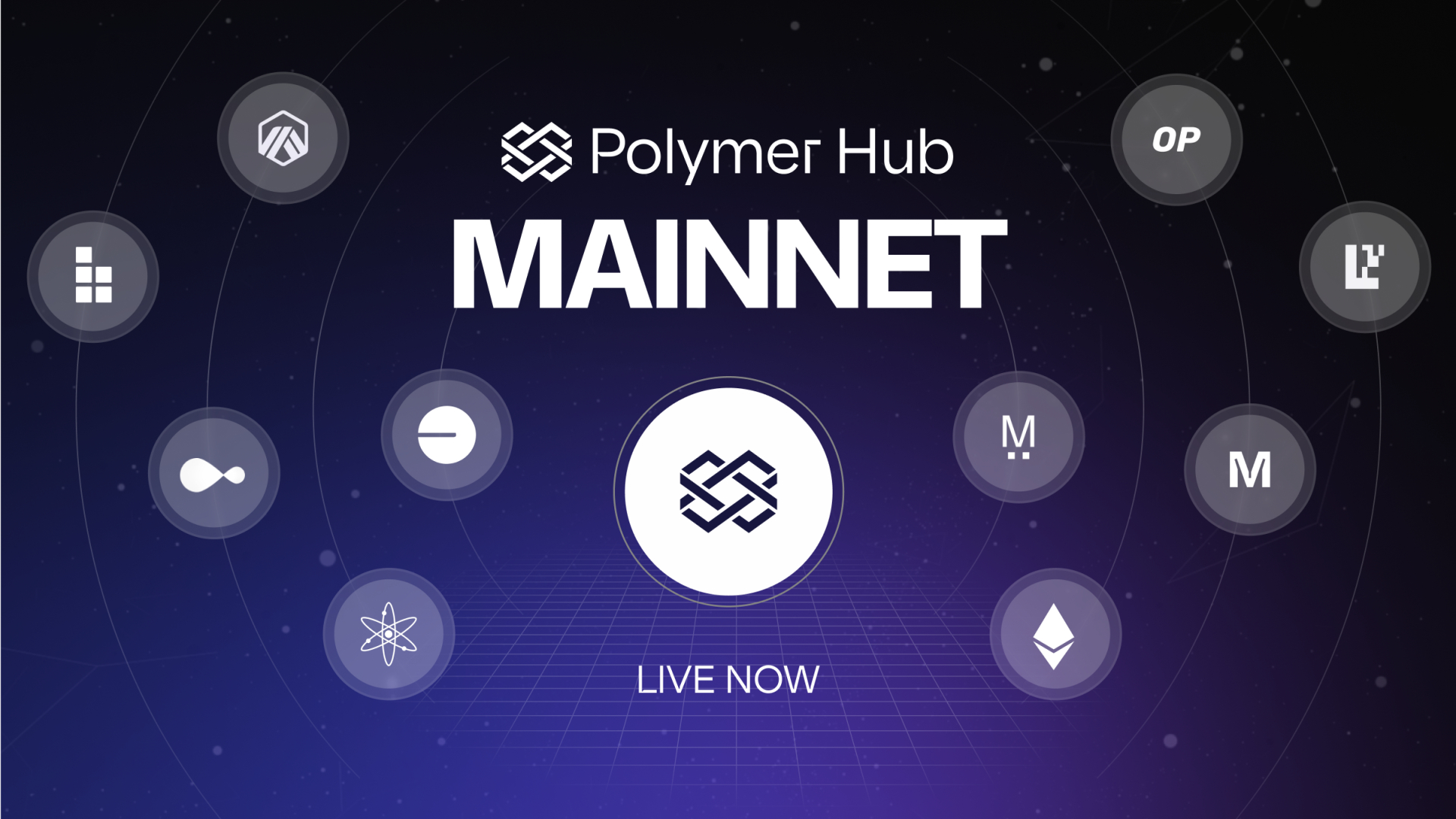
[PRESS RELEASE – New York City, New York, November 11th, 2024]
Polymer Labs has officially launched Polymer Hub, a real-time interoperability protocol for connecting all Ethereum rollups. By streaming messages, states, and logs over IBC primitives (equivalent to Web2’s TCP/IP), Polymer Hub verifies and stores the headers of all connected rollups, allowing applications to prove any arbitrary state across rollups at vastly reduced overhead.
Rollup/L2 ecosystems have historically connected only within their own walled gardens; with Polymer, however, rollups can now communicate across ecosystems and coordinate as fast as they can produce blocks. The protocol offers significant improvements in cross-chain communication latency, bandwidth, and cost for all on-chain primitives compared to existing solutions.
Polymer aims to make cross-chain interoperability as fast, efficient, and affordable as blockspace itself, enabling Ethereum applications to scale to the next million users.
Increase Bandwidth Reduce Latency
Real-time, high-throughput rollups are right around the corner, but existing interoperability protocols (point-to-point and hub-and-spoke models) were not designed to support dense network traffic across hundreds of rollups. According to the team, existing solutions are too slow and expensive for the next generation of applications on Ethereum. As we enter this new era, interoperability solutions must complement their speed and efficiency. Real-time apps require real-time interoperability.
Polymer aims to build the fastest and most efficient interoperability protocol for next-generation rollups like MegaETH. The Hub passes messages in real-time via sequencer pre-confirmations, ensuring cross-chain communication latency can keep up with millisecond block times of these rollups. Polymer also leverages EigenDA to scale cross-rollup bandwidth to facilitate data-intensive use cases on-chain.
“Real-timeness, the ability to react to inputs with ultra-low latency at massive scale, will enable truly ground-breaking decentralized applications. Readying the infra stack for this revolution will be a joint effort, in which real-time interoperability from Polymer will be crucial.” – Lei Yang (Cofounder & CTO MegaETH)
Various technologies like shared sequencers and ecosystem-native interoperability intra-nets have fragmented Ethereum into rollup clusters; these clusters, however, can leverage Polymer Hub’s one-to-all architecture to become interoperable with each other within minutes, rather than months. Polymer Hub is also the first interoperability solution to offer re-org protection. This helps enable token bridges and solver networks to safely settle cross-chain transactions in milliseconds and automatically revert them if they deviate from Ethereum’s L1 history.
Looking Ahead
The next generation of on-chain applications will closely follow the architecture of cloud apps: rollups are the new microservices, AVSs are the new infrastructure services. To enable horizontal scaling on-chain, cross-chain infrastructure must be low-latency, high-bandwidth, and affordably scalable.
The Polymer team seeks to improve interoperability performance in order to enable competitive, novel categories of applications, such as high throughput e-commerce and ride-sharing, to be built on-chain.
“Building interoperable applications that don’t trade off cost or latency is a requirement to make crypto usable again. At scale, this connective layer needs to be as robust and secure as the Ethereum base layer itself, and Polymer has been uncompromising in achieving this vision.” – Vikram Arun (Cofounder & CEO Superform Labs)
Starting with the OP stack, Polymer plans to bring real-time interoperability to all rollup ecosystems on Ethereum—enabling swift and cost-effective scaling for applications in the near future.
Developers interested in trying Polymer Hub’s mainnet can find more information on Polymer Lab’s website, and by following Polymer on X (@Polymer_Labs).
About
Polymer Labs provides real-time, high-throughput interoperability for Ethereum rollups. Polymer lays foundational network infrastructure enabling the next generation of internet-scale apps like Uber to be built on-chain.
This article first appeared at CryptoPotato

